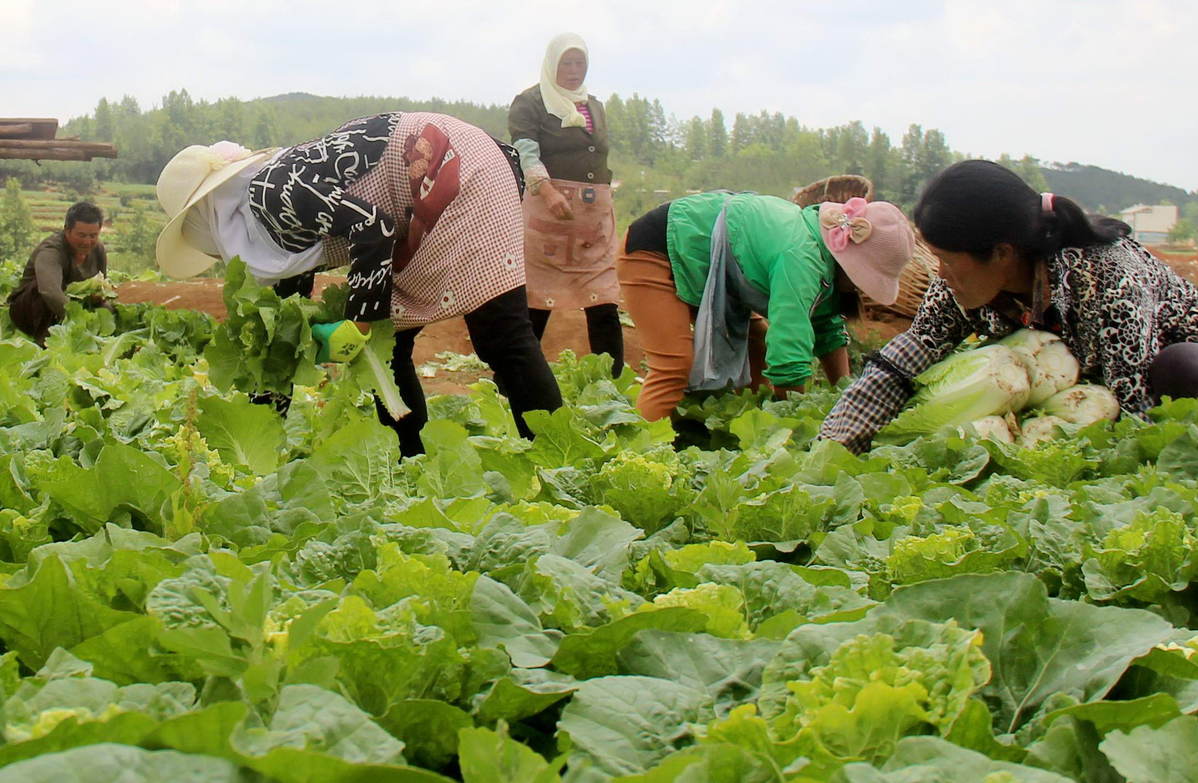Fresh vegetables feed Guizhou's poverty fight
CHINA DAILY,February 19, 2020 Adjust font size:

Farmers harvest cabbages at a planting base in Bijie, Guizhou province, in June. CHEN WUSHUAI/FOR CHINA DAILY
Fresh vegetables from Bijie, a mountainous region in Guizhou province, have been sold across the country and to overseas markets as the industry's development is helping rural villagers out of poverty.
Yang Zhaomai, a farmer in Weining county of Bijie, whose income mainly depends on planting corn and potatoes on her 0.2 hectares of land, used to worry about her two children's tuition. She now earns at least 3,000($430) yuan a month after joining a local vegetable planting base.
"The base offers a basic daily salary of 80 yuan. A skillful worker can earn 150 yuan a day," Yang said.
She said farmers have spare time in winter, as crops in their own fields are harvested. The base now provides them additional income.
At an average altitude of 2,200 meters, traditional crops such as corn and potatoes have low yields in Weining, but it can grow high-quality vegetables-such as cabbage, and white radish-with advantages of fewer plant diseases and pests.
Weining has built six vegetable planting bases to provide jobs for poverty-stricken households since June.
To ensure production and sales, leading agricultural enterprises in the province are helping to build rural cooperatives and sign vegetable planting orders. The vegetables are sold in cities like Beijing and Shanghai, and some are exported to Southeast Asian countries like Thailand and Vietnam.
"We organize companies to participate in promotional activities for agricultural products, and set favorable policies to support the exports," said Xie Hong, deputy director of local agriculture and rural affairs bureau.
By the end of 2019, the county's total planting area of vegetables reached 80,000 hectares, with an expected production of 6 million metric tons and an output value of 4.5 billion yuan, helping 65,000 impoverished people escape poverty.
In addition to vegetables, 11 other kinds of crops with high output value, such as tea, Chinese medicinal herbs and edible mushrooms, are helping Guizhou revitalize its rural economy.
In recent years, Guizhou has made significant achievements in poverty alleviation. Last year, 1.2 million people in Guizhou escaped poverty, lowering the poverty rate to less than 1 percent.
"Guizhou will eliminate absolute poverty in the first half of 2020," Sun Zhigang, the province's Party secretary, said during the provincial poverty alleviation and development conference held in the provincial capital Guiyang on Jan 5.
Zhao Yandi contributed to this story.
051e7a50-0019-488f-817c-bda1f96dadde.jpeg)
